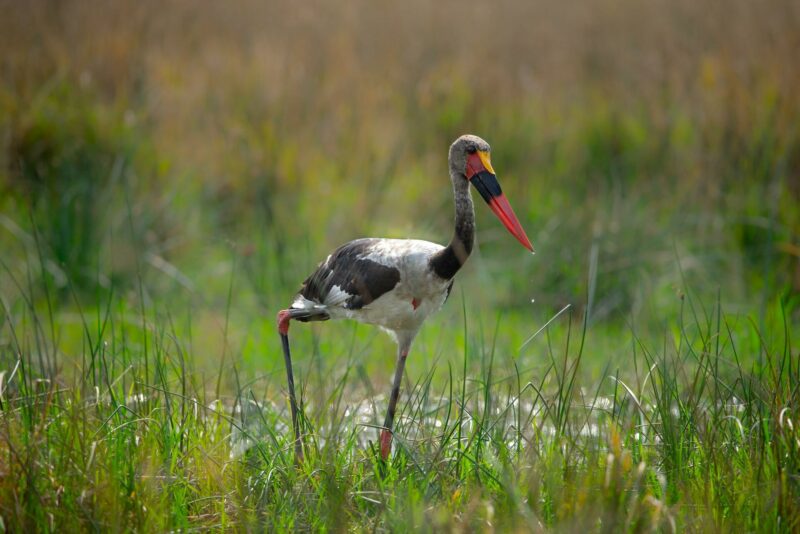30+ voices for nature positive economies
How do we govern our economies to protect and restore nature?

Over the last two years, the Green Economy Coalition ran a high-profile blog series from thinkers, practitioners and activists focused on this question. The series critically examined policy innovations and solutions for valuing and investing in the protection and restoration of nature, and the necessity of economic reform and transformative change to safeguard people and nature.
After more than two years delay, the 15th meeting of the Convention on Biological Diversity has finally been confirmed for December 2022. Will the Global Biodiversity Framework, a global strategy for jointly safeguarding nature and securing our common future, deliver the transformative changes necessary to achieve a nature positive world? Can we accelerate transitions to economies in the service of life – economies that put people and nature first? What institutions, mechanisms and systems are needed to govern the relationship between people and nature?
The voices in this series explored these, and many other questions, addressing the urgency of transitioning to nature positive economies
that enhances the resilience of our planet and our societies. They show that nature positive economies are possible and already exist – economies that respect nature’s limits, prioritise the wellbeing of people and the planet, and measure what matters. But they also affirm that transformations in planning, acting and investing for people and nature, is not yet commensurate with the scale of climate and ecological breakdown.
“ Restoring and protecting nature is one of the best ways to tackle climate change”
Why nature matters, and why now?
Our economies are fundamentally underpinned by the stability, health and resilience of nature. The degradation of nature impacts poor and vulnerable communities, and the more than 1 billion workers globally whose jobs depend on healthy and functioning ecosystems. And restoring and protecting nature is one of the best ways to tackle climate change.
But nature is disappearing at an alarming rate, putting our shared future at risk. While governments, businesses and financial institutions have made progress towards accounting for carbon emissions, most economic decisions still do not account for our impact and dependencies on natural capital - such as healthy soil, clean air and potable water.
The Covid-19 crisis has also brought home just how interconnected our economic and environmental systems are; and the potential risks if we don’t take precautionary action to govern how we interact with and use nature. No corner of our economies will be left untouched by climate and environmental breakdown. Every national priority – jobs, welfare, poverty, industry, investment – will be hit as nature recedes. The protection, restoration and conservation of nature is critical for humanity’s wellbeing.
“ Nature positive actions hinge on political and institutional implementation”
Nature is becoming visible in decision making
Economists have made significant progress in measuring natural capital, with the Dasgupta Review on the Economics of Biodiversity consolidating work spanning the last few decades in setting out monetary valuation proposals. Researchers have now successfully included natural capital into integrated assessment models to account for the benefits nature provides. Policymakers rely on metrics from these models for rulemaking, and these efforts have been critical to improving decision-making outcomes.
Among private sector actors, there has been substantial progress in the development of quantitative metrics to assess biodiversity impacts at the site, project, product, supply chain and even corporate level. Certain industries are already beginning to adopt ‘nature-positive’ approaches, re-focusing and re-designing business models. Indigenous people and local communities knowledges, wisdoms and economic models help humanity think differently about ‘our place in the world’ and bring a holistic understanding that connects the wellbeing of people and nature.
But nature positive actions hinge on political and institutional implementation. The Dasgupta Review revealed that our institutions remain focused on short-term objectives. Our economies and businesses do not ‘measure what matters’, and in their current form, they incentivise overconsumption, degrade communal bonds, and destroy natural wealth. But this is not inevitable or unavoidable; it is simply how our economies have evolved to operate.
A first step according to Dasgupta, and many of the voices in this series, is recognising that our economies are embedded within nature and must operate within ‘one planet boundaries’.

Transformative change for a nature positive world
Nature positive economies require system wide change multiple levels - local, national, regional, global - and across the civic, public, and private sector. These should establish new social norms making a pariah of any state, corporation, organisation or individual that destroys nature. Corporations and governments must commit to having a positive impact on nature and deliver on this promise.
To build new norms, public demand for change must reach a point where it becomes politically impossible to ignore. We need to create a new narrative to inspire the level of civic mobilisation required to halt environmental breakdown – an invigorating story based on the potential for change and the opportunities which come with it, rather than nature’s imminent collapse.
The recommendations emerging from this series include a call to:
- Build a clear vision and action plan for nature
A clear political vision that incorporate diverse voices and perspectives, including those of Indigenous Peoples, is needed to assist leaders to identify specific political obstacles to nature-positive actions and direct their energies towards unlocking them. While the Global Biodiversity Framework should advance this vision and put in place actionable (quantifiable and measurable) targets, an emphasis on implementation, including the creation and fulfillment of national obligations, the development of timely and consistent national reporting, and effective resource mobilization, is urgently needed. - Make nature’s value visible in decision-making
A vital next step for a nature positive economy is mainstreaming full-cost accounting of natural capital into economic decision-making. Green accounting can help build the economic case for improved natural capital management, and provide insights into the specific policies, institutions and priority actions needed for nature positive world. Alongside governments, we need businesses to integrate nature into their decisions by measuring and valuing their dependencies on natural capital. The Biological Diversity Protocol has filled a key gap in providing an accounting framework for consolidating biodiversity impact data in a standardised, comparable and credible manner. - Finance nature’s protection
Strong action is needed to develop and incorporate biodiversity metrics into public and private finance. Central banks can lead the way by ‘stress testing and screening their investment portfolios against biodiversity risks’, taking positive steps such as applying credit ceilings for biodiversity-harmful activities, incentivising investment by providing a lower required reserve rate on privileged “green” assets, and subsidising loan rates for biodiversity-positive sectors. Development banks can follow suit, integrating biodiversity risks and opportunities into their policies to ensure lending results in at least biodiversity-neutral outcomes. International finance mechanisms such as ’'debt-for-nature’ swaps and tropical carbon taxes could provide much needed financial assistance to countries with fiscal constraints, delivering a triple-win of benefits for people, nature and climate. - Work with, instead of against, nature
Cities and national infrastructure work harder for people and nature. Health should be integrated as a central organising principle of urban planning, and investment in restoring ecological infrastructures and nature-based solutions a foundation of development objectives. Alongside planners, designers and business entrepreneurs should adopt a new nature-positive design paradigm, ensuring buildings more than offset the damage caused by resource extraction and provide net social and biodiversity gains. Large-scale agro-ecological transformation could help shift local economies to work for nature and restore degraded landscapes. - Build a people- and nature positive world
What ‘nature-positive’ economies look like in practice hinges on how it is interpreted in local contexts, and the level of ambition for transformative change. It is therefore vital to co-create a shared vision for a nature-positive future through inclusive, participatory processes and multi-stakeholder dialogue. There is a critical role for civil society institutions in convening societies, workers and local communities, and in holding government and business to account. Civil society-led analysis, in Brazil, India and Uganda, to ensure that nature positive approaches become central to green recovery from the Covid-19 pandemic shows that countries are largely missing the opportunity to build back fairer, greener and with nature.
The voices represented in this blog series, show that investments in nature can bring economic and social benefits and drive social inclusion and equity. Economic decision-making should include a rigorous appraisal of the impact on nature. We now have the economic theory, tools and metrics needed to measure and value nature: and a growing ‘nature positive movement’ that have the wherewithal to put nature on the balance sheet.


